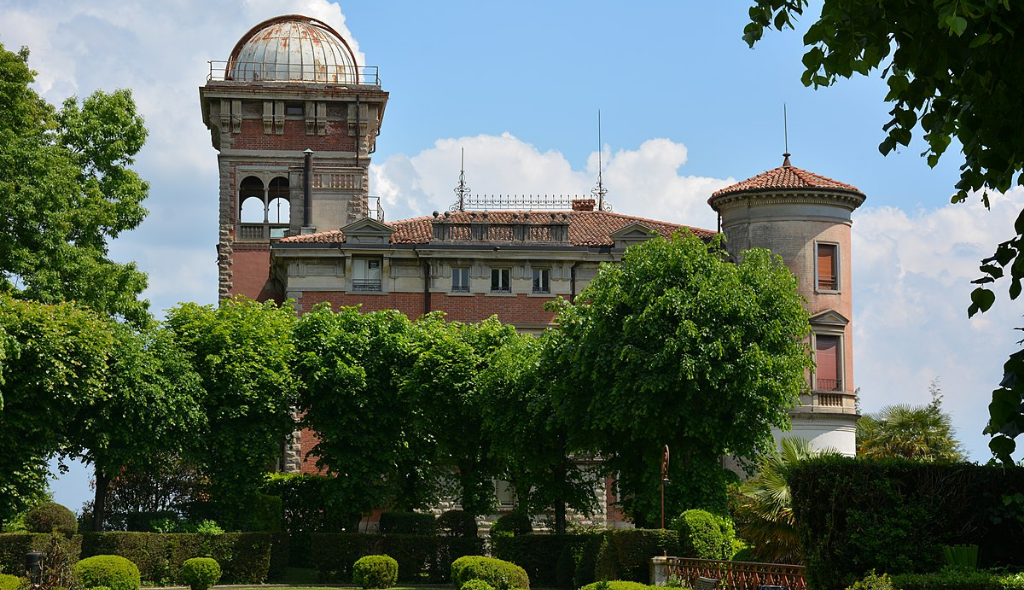DinAmicI VII: seventh conference hosted by the Riemann International School of Mathematics

The DinAmicI (https://dinamici.org) is a network of specialists in Dynamical Systems with diverse backgrounds and research interests; originally created in 2009 with the aim of connecting and supporting a number of Italian dynamicists, DinAmicI has then evolved into an international community comprising, more than 100 members based in more than 20 countries.
In Fall 2020, it has become a work group of the Italian Mathematical Society (the UMI group DinAmicI). Previous activities include: 8 workshops (6 “official” DinAmicI workshops + 2 other workshops), a Summer School, 4 “DinAmicI Days” (scientific/social one-day meetings), as well as a series of online seminars.
The proposed conference will be our seventh official workshop (DinAmicI VII).
From 6 to 9 June the Riemann International School of Mathematics will host the international conference "DinamicI VII", a biennial appointment of the DinAmicI scientific network, which brings together experts in Dynamic Systems.
In the modern mathematical panorama, the Dynamic Systems area stands out as one of the most transversal and branched research areas: its interdisciplinary connotation has helped to stimulate a fruitful sharing of ideas and tools with a large number of other research areas, with applications in various fields, including physics, biology, finance and social sciences. The conference will see the participation of internationally recognized mathematicians, but adequate space will also be reserved for young researchers.
In a scientific panorama that is becoming more and more interdisciplinary, in which Mathematics plays the role of the most basic science and common language, it is not surprising that Dynamical Systems are going through a thriving time, as demonstrated also by the many top prizes awarded recently to mathematicians in and around the field – cf. The Fields medals to A. Venkatesh (2018), A. Avila and M. Mirzakhani (2014), E. Lindenstrauss (2010) and the Abel prizes to H. Furstenberg and G. Margulis (2020), Ya. Sinai (2014), D. Sullivan (2022), E. Szemeredi (2012).
Speakers:
- J. Aaronson (Tel Aviv University, Tel Aviv, IL)
- F. Cellarosi (Queen’s University, Kingston, ON, CA)
- E. Corso (ETH Zurich)
- M. Gidea (Yeshiva University, New York, NY, USA)
- F. Giuliani (Politecnico di Milano, Milano, IT)
- M. Guardia (Universitat Politècnica de Catalunya, Barcelona, ES)
- Z. Hani (University of Michigan, Ann Arbor, MI, USA)
- P. Hubert (Aix-Marseille Université, Marseille, FR)
- S. Jain (Università di Roma Tor Vergata)
- M. Kesseböhmer (Universität Bremen, Bremen, DE)
- B. Langella (SISSA, Trieste, IT)
- C. Liverani (Università di Roma Tor Vergata, Roma, IT)
- J. Marklof (University of Bristol, Bristol, UK)
- J.E. Massetti (Università di Roma Tre)
- P. Nándori (Yeshiva University, New York, NY, USA)
- T. Osman, Queen’s University
- M. Pollicott (University of Warwick, Coventry, UK)
- T. Schindler (Universitaet Wien)
- D. Turaev (Imperial College, London, UK)
- S. Vaienti (Centre de Physique Théorique, Luminy & Université de Toulon, FR)
Scientific Committee:
- Lai-Sang Young (Courant Institute of Mathematical Sciences, NYU, New York, USA)
- Dmitry Dolgopyat (University of Maryland, College Park, MD, USA)
- Vadim Kaloshin (Institute of Science and Technology Austria, Klosterneuburg, AT)
Organizing Committee (in representation of the DinAmicI community):
- Roberto Artuso (Università degli studi dell’Insubria)
- Anna Maria Cherubini (Università degli studi del Salento)
- Marco Lenci (Università di Bologna)
- Simone Paleari (Università degli studi di Milano Statale)
- Alfonso Sorrentino (Università degli studi di Roma Tor Vergata)
